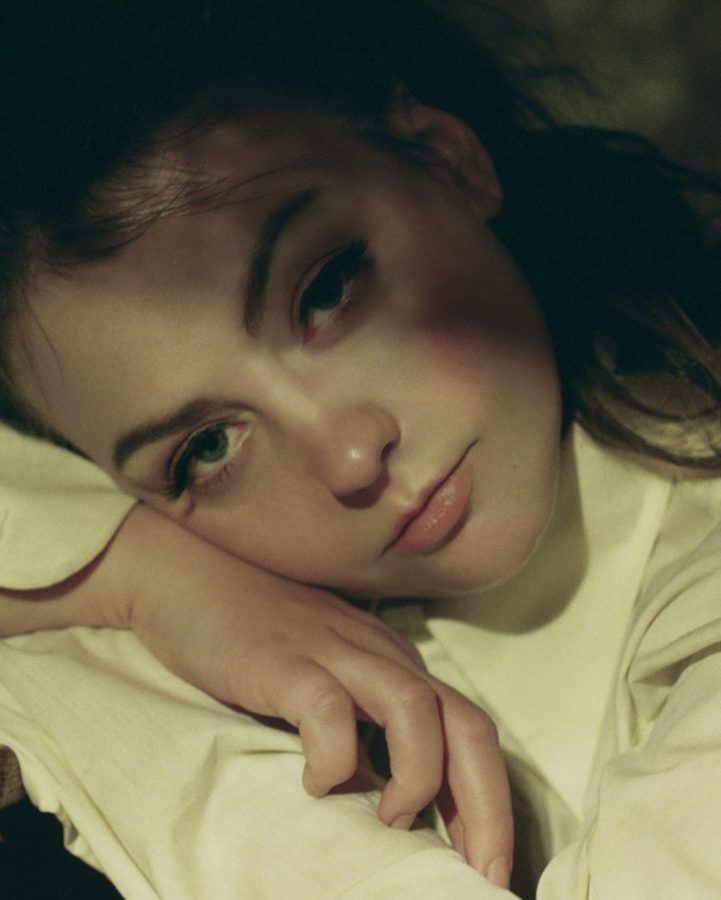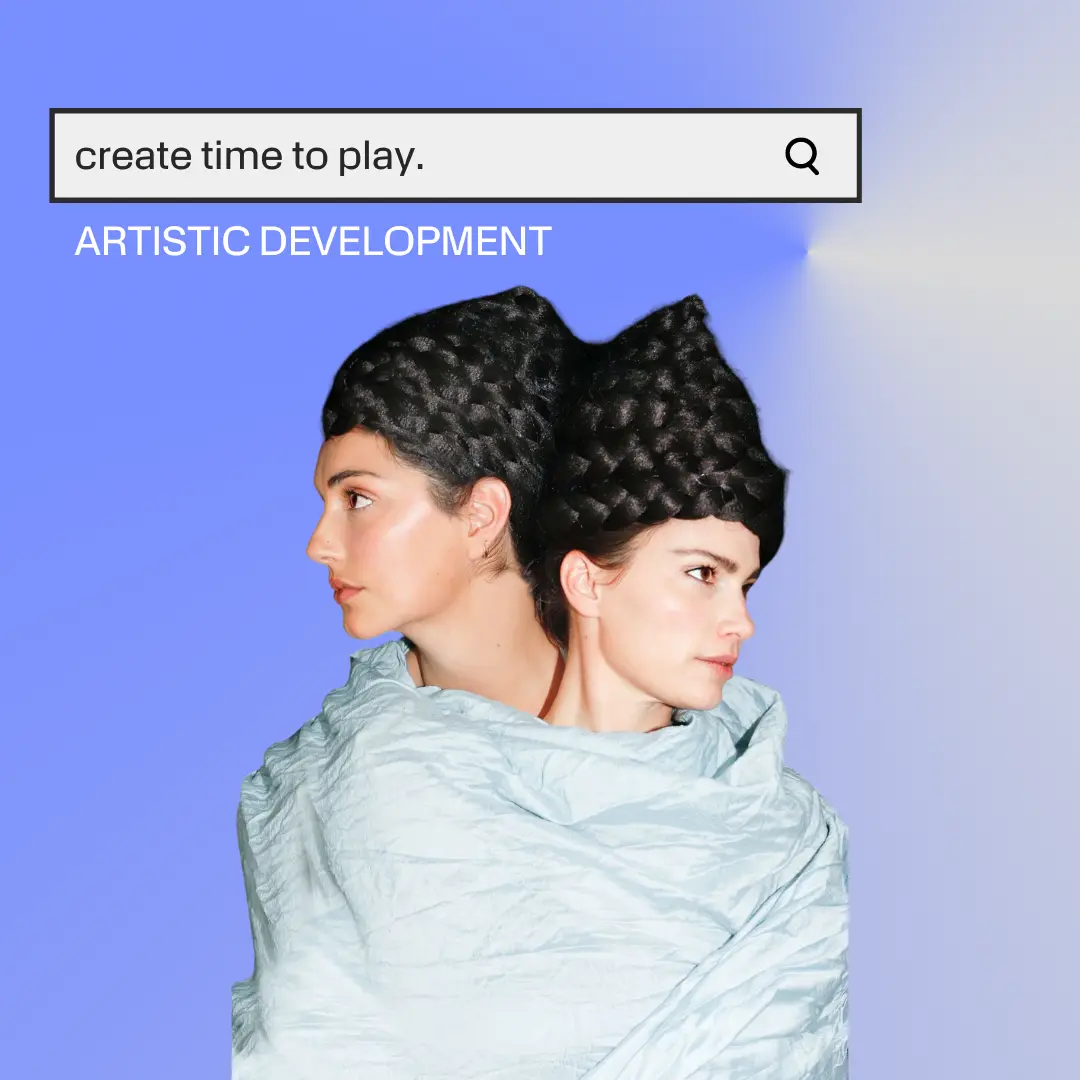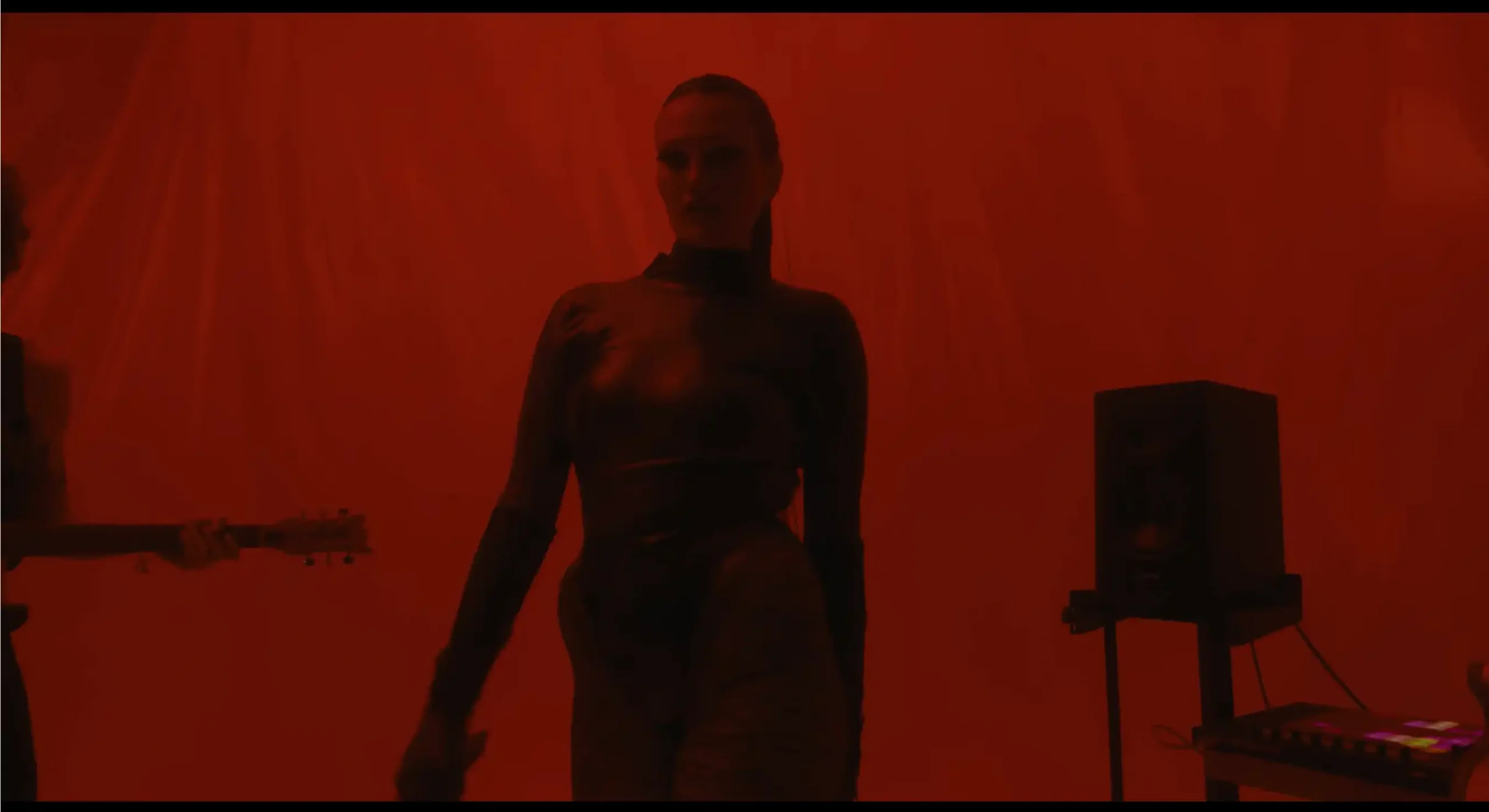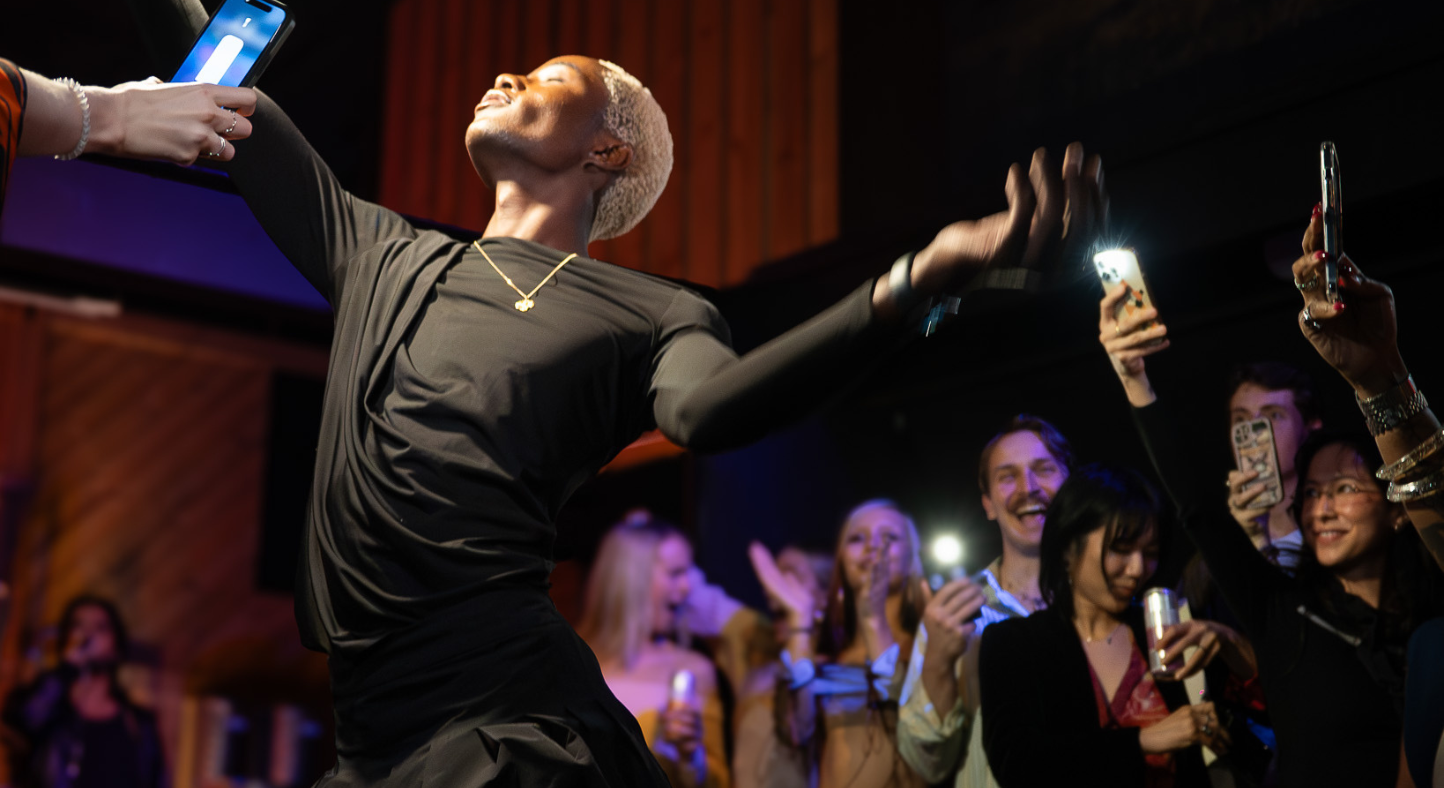Angel Olsen hits the “Big Time”
The folk star chats with CH-V about her new record.
When Angel Olsen entered the studio in 2019 to record “Big Time,” the 34-year-old singer-songwriter had already written most of her sixth album. From the opening seconds, Olsen’s lyrics convey a new era of self-acceptance and assuredness: “I can’t say that I’m sorry / when I don’t feel so wrong anymore.”
Her intention was to celebrate the subsequent elation of shedding the uncertainties of her identity, reveling in her confident queerness and a newfound, nourishing romance. What she had not written about—nor possibly predicted—was that soon after coming out to her parents, both of whom would pass away within a number of weeks.
Grief, love and growing up provide captivating momentum in music. And “Big Time” is captivating, sparkling with moments of universal resonance, small confessions with the emotional impact of dynamite, and a much earthier, less spectacular approach to composition and sound. Whereas her last album, “All Mirrors,” was full of glitzy synthesizer, elaborate and eclectic in scope, “Big Time” steers towards country-fringed sincerity that lends Olsen’s storytelling the burnished warmth of stories shared between friends, through the time-honoured tradition of American song.
Six years after the release of the deliberately ornate “My Woman,” the Missouri-born, North Carolina-based Olsen has sonically bared her vulnerability: exploring the relatable desire to be accepted by our parents and peers—but being robbed of this through death or conflict. On the new record, Olsen also investigates the redemptive powers of a lover who sees our flaws and kisses their ragged edges until they’re no longer sore points.
If a major sexual liberation, the death of two parents, a pandemic and an album all sound like the makings of a film… then it’s only natural that, indeed, there is a film. The album arrival coincides with a 29-minute short, directed by Kimberly Stuckwisch, which was shot over a single week in January of this year. It is a visual combination of the dreams Olsen was having following her mother’s death, involving time travel, and dialogue both real and imagined from events that inspired the songs.
From Mars Hill, in the Blue Ridge Mountains of North Carolina, she connected with me via Zoom to discuss the new album, sexual identity and maintaining an ordinary life beyond music.
The following conversation has been edited and condensed for clarity.
Tell me, at what point were you able to acknowledge your sexual identity and come out so publicly?
I never thought my previous writing was a lie or misled in any way. Over the pandemic, having reflected on my life in a really big way, these truths came to the surface for me. I could access something deeper within myself. I still feel that [before I came out], I was being my truest self that I could be. I feel like I knew myself [then], and for the most part I did, but I didn’t allow myself to access this deeper side.
Did coming out feel like a weight had been lifted?
I thought it was important to come out because so many people are afraid to say the word gay and to talk about being queer. It’s scary to tell your parents and tell people you love who you are when you risk losing them because of it. So, I felt it was important for me to put my fears aside and do it for my fans, for people who need to hear it.
I do feel a lot lighter saying it to people, but I didn’t feel like I was living a lie before. I just felt like, ‘Oh wow, I was so deeply in this structure that society puts on us that I didn’t allow myself to access this part of myself. I didn’t even know it was there.’
There’s a big, spacious warmth to the country stylings of “Big Time.” It’s a very familiar sound of steely guitar and romantic, languorous love, grief and resilience storytelling. Did you consciously want to make your mark on a very typically male-dominated musical genre and say, ‘I own this too?’
It wasn’t thought out like that. I have always put my own spin on nostalgia. I really got into Lucinda Williams, Jeannie C. Reilly and Dolly Parton over the pandemic. I’m influenced by male songwriters and 70s rock-ballads, too, so it was a mixture of everything. I didn’t think about [the politics of country music]. I just decided to take up space. [laughs]
What music, or which artists, were you listening to in order to discover that this was the music that was bringing out emotions in you that you wanted to evoke for others?
I released a [cover] track today [“Greenville“] by one of my favourite artists, Lucinda Williams. I just really like her writing, it’s really honest and angry, full of passion and truth. You can tell by listening to it that it’s based on stuff she knows about. You couldn’t write like that if you didn’t know about it.
That’s what I loved about listening to these 70s records, and this Dolly Parton record that I particularly love called “Just Because I’m A Woman.” The way that her voice is recorded on that record is so powerful and so special, it has a “Dusty In Memphis” sound to it. The thing about country songs is that you can say something funny and sharp that is also conveying sadness and disappointment. You can say all these difficult things and make it funny and upbeat.
I don’t ever sit down and decide to write a kind of record. I think just listening to that kind of stuff got into my head, and I started writing stuff along the same lines, sort of my own way. A lot of the songs I wouldn’t call Americana or country at all, but there’s enough there that I leaned into it more than I usually do.
Getting older, I don’t feel the need to be everything, I don’t need to be genre-defined anymore. I just wanted to make something comprehensive. Jonathan Wilson, who produced it with me, allowed my voice to be front and centre in a way that I’ve never embraced in the studio and that was really cool.
What was the conversation that you had with Jonathan in the studio that resulted in your vocals being so prominent?
It just sort of happened that way. We recorded all the songs live and found the takes that we loved, and I kept saying, ‘I don’t need a lot. I don’t wanna do a lot of backflips. I just want to have a classic backing band for these songs,’ and I think he got it. He was really intuitive. When it came time to mix, he kept pushing the vocal louder, and I kept asking him to pull the music up. I’m glad we had that back-and-forth because the songs really are about the voice and the words. I’m glad he pushed back and the voice is front and centre.
When you write lyrics, are you thinking about conveying something in vague-enough terms that it can be universally relatable, or do you not consider how your writing will be interpreted until later?
There’s a little bit of ‘How will this come across?’ in the writing phase. Part of my process is that I end up sharing demos with friends, and there’s a game that I play: if I feel humiliated after sending the demo, I know it’s not for me.
There’s a little bit of wondering what people will think… but I don’t ever really know. No matter if I tell the exact truth of my life or my stories, there’s always safety in knowing that people will misinterpret things constantly. They’ll always experience [my music] through their own lens. So, I don’t really worry about it.
For me, the song is a moment that’s special to me, that I want to share. It’s a moment of realisation or clarity. But by the time I’ve written it, it’s not affecting me in this intense way anymore. I hope that it can be used as a tool for other people to relate to and feel less alone or have a defined thought that they can click with, you know?
The weirdest part of all of it, having written for so long, is people thinking that you’re a certain way based on your work when you have an entirely other life outside of it. I’m not walking around all day singing the songs! I’ve got to keep up with my house, find a cat sitter, make dinner, make plans with people. There’s stuff at home I have to work on constantly. The writing stuff is a very small fraction of what my actual life is, so it doesn’t consume me the way people consume my music.
“Go Home” is wistful and dramatic, a little bit Kate Bush, I thought. Tell me about that song, the lyrics and the music.
The demo sounds quite different. In the studio, we were trying to build all these percussive sounds around it, then I decided to do this wailing thing where we took a microphone through a tape echo machine and recorded me screaming over and over again. We built a wall of sound with just vocals. It’s the first time I’ve used voice in that way, as a musical tool, like a string instrument or something. It really added to the weirdness of the song. The demo was a pretty laid back, soulful piano track. I like both versions.
The song is a mixture of feeling exhaustion from touring and having to leave all the time. I needed to be surrounded by people who are lighter, who are kind to me, who would work with me, be honest with me, and talk to me about real things. I think a lot of it was just me wanting to simplify my life, which comes from getting older.
You’re touring with Sharon Van Halen and Julien Baker in July. Tell me how important friendship and kinship with fellow artists is to your mental health and your ability to weather the blows of this industry?
I’ve known Sharon for ten years in passing, and she was the first person who came to me and said, ‘Let’s write a song together.’ I was not threatened or weirded out. We both have established careers and styles. We’re different people and singers, but I really respect her way of doing things. I’m very excited to be in a traveling camp with her band and Julien’s band. There’s more people to share stories with, to be able to talk with the two of them, to lament about stuff that we go through as leaders.
I decided to write music, I didn’t sign up to being a leader, but I have to connect with everyone, guide everyone through the songs. I never thought that I would be in that position—it can be tough to balance the hats of being a friend, a co-worker, the frontman… checking in and making sure everyone is comfortable while also protecting your own boundaries.
Sharon and I have a lot in common with that stuff: stories, mistakes we’ve made, things we’ve learned. I think it’s really helpful to be able to share that and to feel less alone when traveling. I look forward to bonding with them.
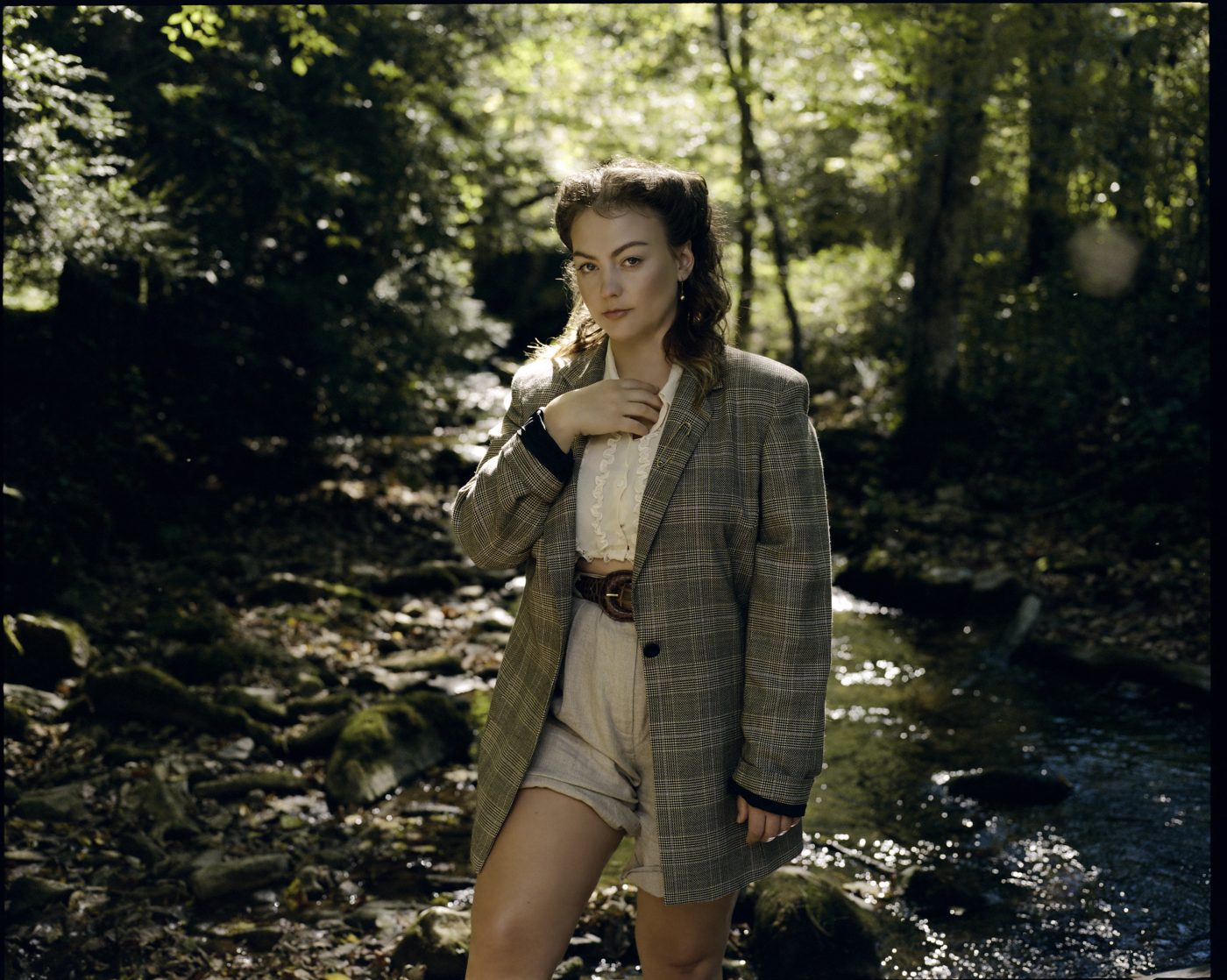
+ IMAGE : Angela Ricciardi

















